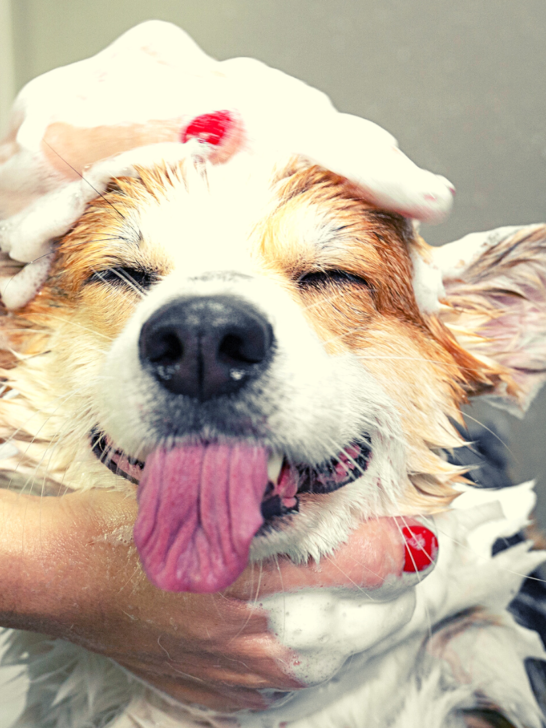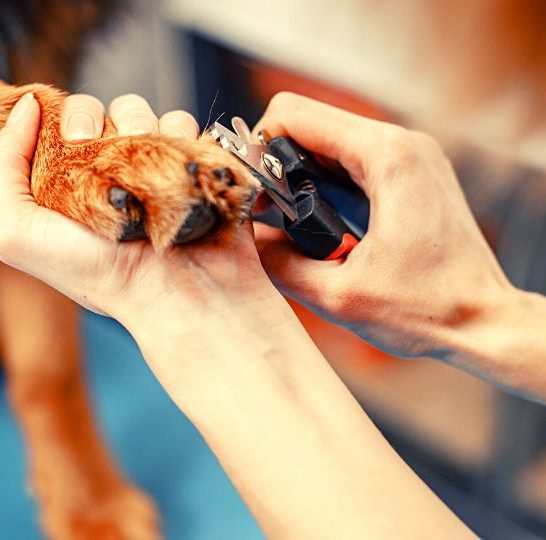6 Best Dog Treats For German Shepherds
Every good dog needs a treat from time to time, and your dog is probably no exception.
Treats are one of the best ways to reinforce lessons in a positive way, and they also help you to bond with your dog.
Of course, there are a massive number of dog treats on the market.
This makes it a little bit difficult to choose the right one, especially when all of them seem so similar.
In this article, we will give you an informed guide that will help you choose the best dog treats for your German Shepherd.
IN A HURRY? HERE’S OUR TOP PICKS…
 Purina Beggin' Strips Made in USABest Overall Product |  Best Budget Product Purina Alpo Tbonz Filet Mignon Flavor Dog Treats - 40 Oz. Canister |  Runner-Up Old Mother Hubbard Classic Original Assortment Biscuits Baked Dog Treats, Large, 3.5 Pound Bag | |
Summary | You’ve certainly heard of this brand, as their commercials are very well-known. Like they say in those commercials, the first ingredient on the list is pork. | These are cheap treats, but they are on the higher end of that spectrum. They offer a decent-quality treat at a very low price, so it’s easy to buy these things in bulk and stock up for a while. | This is an old and trusted brand, and it’s easy to see why that is the case. They’ve used the same recipe for nearly a century, and dogs seem to be fine with the results. |
Pros | Made with real bacon | Lots of treats at a low price | Contains only natural ingredients |
Cons | Shorter shelf life than most | Size – could be a little small for a German Shepherd | Might be a little small for a German Shepherd |
Best Overall Product: Purina Beggin’ Strips
Pros
- Made with real bacon
- Decent bulk value
- Very soft texture
- Lots of protein and carbs
- Convenient resealable pouch
Cons
- Shorter shelf life than most
- Contains a small amount of sugar
- One (1) 40 oz. Pouch - Purina Beggin Strips Real Meat Dog Treats, Original With Bacon
- Bacon flavored dog treats with real meat as the #1 ingredient
- The original strip that started it all
- Beggin Strips for dogs made with real bacon
- Soft texture for easy chewing
- Packaging May Vary
You’ve certainly heard of this brand, as their commercials are very well-known. Like they say in those commercials, the first ingredient on the list is pork.
It is good to see that this one isn’t made from a bunch of fillers, but it’s worth noting that the second, third, and fourth ingredients are plant-based.
Still, it contains most of the best plant-based protein sources, so this one has a pretty good nutrient profile.
These treats are very soft, making them a great choice for dogs with sensitive gums or bad teeth.
Of course, this also means that there are no dental cleaning benefits to be had, but that’s to be expected.
There is, however, one negative consequence of their soft texture.
Because they contain a lot of glycerin (added to maintain softness), their shelf life is not quite as good as most others.
Still, this is an excellent bulk deal in a convenient and resealable container, so it makes our list anyway.
Best Budget Product: Purina Alpo Tbonz Filet Mignon Flavor Dog Treats
Pros
- Lots of treats at a low price
- A mix of harder and softer textures
- Resealable jar keeps them fresh
- Simulates the taste and feel of beef
- Good nutritional profile
Cons
- Size – could be a little small for a German Shepherd
- One (1) 40 Ounce Canister of Purina ALPO T-Bonz Filet Mignon Flavor Steak-Shaped Dog Treats
- Steak-Shaped Dog Treats
- Great Filet Mignon Flavor For Your Dog To Savor
- Made With Real Beef
- Great For Small Dogs Cooked With Pride In The USA.
- One of Five ALPO TBonz Mouthwatering Varieties.
These are cheap treats, but they are on the higher end of that spectrum. They offer a decent-quality treat at a very low price, so it’s easy to buy these things in bulk and stock up for a while.
The whole thing comes in a convenient resealable jar, which keeps the treats soft and fresh. You can also re-use the jar, but that’s another matter.
These treats are meant to simulate the taste and texture of a steak, and they seem to do a decent job at that. Dogs very seldom get to eat a steak, and so they won’t know the difference anyway.
The treats contain glycerin, which tells us that they will stay soft over time. As for the meaty parts, these contain beef, chicken meal, liver, and bacon fat.
They are also given a “filet mignon” flavor that dogs seem to like.
The only problem is that these treats are intended for smaller dogs. As such, they may not be large enough for a full-grown German Shepherd.
We would recommend giving them two at a time, which still makes them a good value.
Besides, when you are using a treat for training purposes, it doesn’t take a large one to make your point.
Runner-Up: Old Mother Hubbard Classic Natural Dog Treats
Pros
- Contains only natural ingredients
- Protein sources are all high-quality
- Good reputation for consistency
- Crunchy consistency aids teeth cleaning
- Pretty affordable for a product of this type
Cons
- Might be a little small for a German Shepherd
- LARGE CRUNCHY TREATS: An assortment of crunchy large dog biscuits make a great training treat and a great addition to your dogs diet; they feature all natural ingredients and assorted natural flavors including chicken, eggs and real cheddar cheese
This is an old and trusted brand, and it’s easy to see why that is the case. They’ve used the same recipe for nearly a century, and dogs seem to be fine with the results.
The most distinctive thing about this biscuit is the fact that it’s made with nothing but natural and high-quality ingredients.
We don’t see any of the usual corn or soy fillers that represent cheaper treats.
These treats get all of their protein from high-quality animal sources, including whole chicken, chicken fat, eggs, and whole wheat.
Yes, wheat is actually a source of protein, though it doesn’t have as much as meat. Unlike most organically-sourced products, this one isn’t too expensive.
There’s only one potential failing: With so many plant-derived ingredients, including spearmint and green tea, there will be a slightly higher risk that your dog will be allergic to one of those ingredients.
Honorable Mention: Hill’s Science Diet Soft Savories Treat
Pros
- Extremely soft and tender
- Available in lots of flavors
- Includes a lot of vitamins and minerals
- Great for small-scale purchases
- No corn or corn by-products
Cons
- Cane molasses?
- A little expensive on a per-treat basis
- Made with real peanut butter
- Not artificially preserved or flavored
- Fun, rich flavors for a happy dog
- 100 percent satisfaction guaranteed or your money back
These things look like little cinnamon rolls, and they are extremely soft and tender. In fact, softness is their primary selling point.
As such, this might be the best choice for you if your dog has a serious need to protect its teeth from hard, crunchy treats.
We listed this one as an alternative choice because that’s what it is: An extra-soft alternative to standard dog treats.
This one comes in lots of unique flavors, including peanut butter and bananas (Elvis would have loved these).
When we look at the ingredient list, we see all kinds of fruits and vegetables. Believe it or not, these are actually very healthy for dogs, as they add many vital nutrients.
This one doesn’t contain any corn or corn by-products, as most of its carbs come from potatoes. However, we do see cane molasses on the label, and we have to question why it is there.
In short, this is a good choice for those times when you only need a few treats for one or two dogs.
It would not be good for those who have a lot of dogs, and that’s because you will end up paying more.
Yes, one package of these things is quite inexpensive. However, when you figure it on a cost-per-treat basis, the cost goes up quite a bit.
Alternative: Nutro Natural Crunchy Dog Treats
Pros
- Guaranteed to be made with non-GMO ingredients
- Very high in omega fatty acids
- Lots of vitamins and minerals
- Not made from meat by-product
Cons
- Only good for small-scale needs
- Too many ingredients
- Contains one (1) 16 ounce bag of Nutro Crunchy Dog Treats with Real Mixed Berries
- Nutro Crunchy Dog Treats are rich in nutrients and full of flavor, making them healthy treats your small breed or large breed dog will enjoy
- High-quality protein is the foundation of Nutro healthy dog treats and they’re made with real, high-quality ingredients you can see and smell
- At only 5 calories per treat, NutroOCrunchy Treats are great natural training treats your dog will sit and stay for
This one is marketed as being completely natural and non-GMO, and that seems to be its main selling point.
We can see that very few preservatives are present, and a large number of natural ingredients can be found.
There is no corn gluten here, and that’s always a good sign. Instead, it is made from a chicken meal.
However, unlike many other commercially available dog treats, this chicken meal is not sourced from by-products. As such, it is likely to be of higher quality.
Like our other alternate product, this one is only good for those with small-scale needs.
It’s not a good deal when you start buying in bulk, but it does make a tasty supplement to your dog’s regular diet.
Buyer’s Guide
Let’s look a little more closely at the essential information that you will need in order to choose the best treats for your dog.
Chances are, your dog isn’t all that picky about treats, but that doesn’t mean that you shouldn’t be.
When you think about how much loyalty and companionship your dog provides, you realize that you owe it to them.
Thus, we will explain how you can evaluate any dog treat that you might be considering for purchase.
Specific Dietary Needs of German Shepherds
Let’s not forget that we are talking about a specific breed here, and German Shepherds do have some specific dietary needs.
The German Shepherd is a large and active breed, and they are known for their energetic nature.
As such, you always want to choose food that gives them plenty of energy. When choosing treats, the same logic applies.
It is a good idea to give your dog plenty of protein, as this will help them to stay active all day long. It will also promote good lean muscle growth, and that indicates a healthy animal.
A diet high in protein will also keep your dogs feeling full and sated, just as it does for humans.
At the same time, many good sources of protein are also quite high in fat. When a German Shepherd gets fat, it is not a good thing at all.
Large dogs like this one are more susceptible to heart problems than smaller breeds.
This is (mostly) because their heart has to pump a larger amount of blood, and it has to be moved a greater distance to reach the limbs.
A tougher job requires a stronger machine, and being overweight will put unnecessary strain on that machine.
As you can see, large-breed dogs are more susceptible to a condition called DCM (dilated cardiomyopathy).
That’s a heart condition in which the heart is enlarged and weakened.
We would generally recommend that you feed your German Shepherd a high-protein diet, but you should look for one that is derived from fish or poultry sources.
Foods that are made from chicken, turkey, duck, salmon, etc. all tend to be lower in fat while still being exceptionally high in protein.
By the same token, it is good to avoid any treats that are particularly high in fat.
German Shepherds also require a lot of calories to maintain their body weight, but that isn’t really a consideration when choosing treats.
Teeth Cleaning Treats
There are a number of treats on the market which claim to clean your dog’s teeth.
Some of them are even shaped like little toothbrushes, and it is claimed that they will make a big difference in your dog’s oral health.
First of all, we should mention that dogs do require a toothbrush and an occasional brushing. Buying a box of toothbrush-shaped treats will not change that fact, so don’t get it twisted.
At the same time, it is a fact that dogs need to chew for the maintenance of oral health.
The chewing process gives them an easy way to remove tartar and plaque that builds up on their teeth. Believe it or not, the type of food that they eat will play a big role.
As you will see by reading it, these researchers found that the grain size of a dog’s kibble will greatly affect the amount of plaque and tartar on their teeth.
They found that when kibble grain size was increased by 50%, the amount of debris on the dog’s teeth was also reduced by 42%.
The addition of an anti-plaque agent (sodium tripolyphosphate) increased the effectiveness even more.
Based on this, we can positively state that dog teeth can be cleaned through chewing. Because treats are not granular, they have even more potential for this purpose than any kind of food.
It is good to choose dog treats with a roughened surface, as this will surely help to remove plaque and tartar.
Still, German Shepherd owners who regularly brush their dog’s teeth will not have to worry about this.
Glucosamine and Chondroitin
These are two substances that are commonly added to dog food and dog treats.
They are meant to improve the bone and joint health of the animal and have been shown to be pretty effective for that purpose.
Glucosamine and Chondroitin are natural components of cartilage, so you don’t have to worry about them.
They may have fancy-sounding names, but they are as common as ants. Some dog treats will contain these ingredients, and it is a nice little bonus.
But, do these things actually work, or is it just a gimmick? Although these things are not miracle cures, there is a significant amount of research to show that they work.
For instance, a clinical trial involving the use of Chondroitin Sulfate and Glucosamine Sulfate on a group of 35 dogs.
All of the dogs suffered from arthritis, and all of them showed significant improvement after treatment.
Omega Fatty Acids
Believe it or not, fat is an essential nutrient. In fact, it is one of the most essential nutrients for all mammals, including dogs and humans.
However, we aren’t telling you to go out and feed your German Shepherd a big bucket of lard!
You want your dog to get more of the “good fats,” which usually means unsaturated fats. Of all the so-called “good fats,” the most beneficial would definitely be the omega fatty acids.
Many dog treats will include things like this, and fish oil is probably the most common source.
So, how beneficial are these omega fatty acids for dogs? Let’s look for some evidence.
We were able to find another study, and it is quite similar to the one we just examined in the earlier section. This one involved 127 arthritic dogs, so it was a little more extensive than the other one.
As you can see, the results were also quite similar. The dogs showed an increase in their activity levels and showed fewer signs of discomfort.
Of course, we don’t want to focus all of our attention on arthritic dogs.
Although these studies do demonstrate that omega fatty acids (along with chondroitin and glucosamine) are good for the skeletal system of a dog.
As it turns out, this stuff is also good for the heart.
This one was performed on a group of dogs suffering from heart problems. They all suffered from arrhythmic myocardiopathy, a disorder that causes irregular heart rates.
They divided a group of 24 Boxer dogs into two groups, one of which was given a large dose of omega-3 fatty acids.
All of them showed improvement in their condition, so it seems that it’s also good to look for dog treats that contain omega fatty acids.
Most Important Vitamins For Dogs
With all this talk about nutrition, it is worth asking: What are the most important vitamins for dogs?
Even though you aren’t supposed to give treats on a constant basis, you still want to make sure that they are adding nutrition to your dog’s diet.
The following vitamins are usually considered to be the most important for canine health:
- Vitamin A: Vital for ensuring the health of your dog’s eyes and vision. Also responsible for bone growth, immune system function, reproductive function, and fetal development. For pregnant dogs, this is obviously of vital importance. Dogs with eye issues can also benefit from a diet rich in Vitamin A.
- Vitamin B1: Essential for the health of the brain. This vitamin helps dogs to avoid becoming senile later in life and to avoid neurological problems at any stage. Also called Thiamine, this vitamin is important for the metabolism of carbohydrates, making it essential for many biological functions.
- Vitamin B12: Also important to the functioning of the brain, and also used for the formation of new blood cells. It also seems to promote healthy digestion and is found in abundance in most kinds of meat.
- Vitamin B6: Considered to be one of the most essential canine nutrients. This one is involved in hormone regulation, glucose (energy) generation, immune response, gene activation, red blood cell health, as well as the overall health of the nervous system.
- Vitamin C: As a powerful antioxidant, Vitamin C helps dogs to mitigate the effects of aging. It’s also a very potent anti-inflammatory agent, so it helps to keep those joints working smoothly.
- Vitamin D: This one is particularly important to the health of your dog’s bones. Some people call it the “sunshine vitamin,” because sunlight is one source. Without Vitamin D, the body would not be able to grow or repair bones.
- Vitamin E: Like vitamin C, it is a great antioxidant that fights aging at the cellular level. It is also used by the body to regenerate damaged membranes.
What Are the Most Common Ingredients of Dog Treats?
Like dog foods, dog treats include a mixture of fat, protein, and carbs. Most of the carbohydrate content is supplied by some sort of flour.
It might be wheat flour, corn flour, rice flour, etc., but this kind of thing will often make up the bulk of the dog biscuit recipe.
When mixed with water or milk, it makes a great base on which to begin.
When it comes to protein sources, dog foods and dog treats get a lot more diverse. Both plant and animal-based sources are used, but animal proteins are obviously the better choice.
For this reason, the cheaper dog treats will get more of their protein content from things like corn gluten, and soy.
Those things are rich in protein, but they are harder for dogs to digest. In many cases, the result is terrible flatulence.
So, if your dog has ever cleared the room after eating some cheap dog food, you now know why.
When buying dog treats (or dog food, for that matter), you should always look for the primary source of protein.
This is usually one of the most distinguishing characteristics, separating one brand or product from another.
The most expensive will contain wild meats like venison and boar, as these are the highest in protein. However, they will more often use a “meal” consisting of ground-up meat byproducts.
These are basically the leavings from meat plants that have been rendered into a high-protein mixture.
Finally, some others will use milk or eggs as a source of protein, and this is particularly common in dog treats.
If you’ve ever used “milk bones,” you are probably not surprised to learn that they use milk. Milk and eggs are cheaper than meat but are still loved by dogs, so they are a natural choice.
That brings us to fat sources. Fish oil is always a good thing to see, as it indicates a high level of omega fatty acids to be present.
Fish oil has some other ingredients that are likewise quite healthy. Cheaper foods are often using byproducts of the food industry, and these consist of a variety of different fats.
Best Dog Treats For German Shepherd: Final Thoughts
Choosing the right dog treat shouldn’t have to involve all this reading, but we do not live in an ideal world.
There are plenty of companies that will sell you garbage with no regard for you or your pet.
As such, it pays to be a discriminating consumer and to be a little picky about which treats you give your canine companion.
This guide is intended for the picky dog owner who wants to give their dog the very best, and we hope that description fits you. Either way, feel free to come back and see us again.
Frequently Asked Questions
Here are a few of the most common questions that we receive on this subject.
What makes some treats softer than others?
Treats that stay soft have probably been treated with glycerin, which is a natural component of fats and oils.
When raw animal fat is processed, it separates into glycerin and lard. Glycerin naturally helps substances to stay soft and resist drying.
Because of this, it is added to many foods to keep them from hardening with time, including many brands of dog treats.
Are dog treats safe for human consumption?
You’d be surprised at how often we get this question. Often, children (or even curious adults) will wonder why their dog likes those treats so much.
In most cases, the answer to the question is yes. At the same time, dogs tend to have different flavor preferences, so you probably won’t like the taste of any dog treats.
That being said, you should also avoid feeding your dog any treat that wouldn’t be safe for humans.
Some companies will boast that their dog treats are safe for human consumption, but that’s just a safety/quality test.
When should I give my dog a treat?
There is an old saying that says “if you reward a dog for nothing, you are teaching them nothing.” In general, this statement is true.
The purpose of a treat is to reward your dog when they have been good. Pleasing their master brings rewards, and it is good for dogs to know that.
Also, many treats are high in fat, and should not be given too often for health reasons.
The short answer is: Give your dog a treat when they earn one but don’t give them more than 5 in a single day.
Are cheap dog treats unsafe?
Some people avoid the cheaper brands of dog treats, saying that they are unsafe. While this is usually not true, these people are not totally wrong.
There have been times at which tainted dog treats (usually from cheap brands) have caused problems.
For instance, just last year, there was a serious problem with pig ear treats. Many of them were found to be contaminated with salmonella, so you should keep your eye on those recalls.
Are dogs meant to be pure carnivores?
Some people will look at any non-meat ingredient in their dog treats as a negative. These people say that dogs are supposed to eat meat alone and that everything else is just filler.
However, this does not seem to be the case.
In the wild, dogs tend to be omnivorous, even though they prefer meat sources over plant material. In fact, a diet consisting of only meat would probably be unhealthy for your dog.
As such, don’t worry if your chosen brand of dog treats contains some plant material.
What are the best dog treats for German Shepherds?
The best dog treats for German Shepherds include options like natural chews, meat-based treats, and high-protein snacks suitable for their active lifestyle. It’s crucial to choose treats specifically designed for large breeds or German Shepherd puppies to ensure they meet their nutritional needs.
Can I give the same treats to a German Shepherd puppy and an older dog?
German Shepherd puppies and older dogs have different nutritional requirements. You should choose treats suitable for their age, size, and activity levels. For example, softer treats may be a better option for puppies, while older dogs may benefit from treats that support joint health.
How often should I give my German Shepherd treats?
Treats should be given in moderation, even if they’re the best dog treats for German Shepherds.
For example, during daily training sessions, small, low-calorie treats can be used frequently, while higher-calorie treats should be given sparingly to avoid overfeeding.
Are there specific treats that are best for training sessions with German Shepherds?
For training sessions with German Shepherds, it’s beneficial to choose treats that are easy to break into small portions, have a strong aroma to hold the dog’s attention, and are appealing. Additionally, consider treats that are gentle on the stomach to avoid any digestive issues during training.
Can I rotate different types of treats for my German Shepherd?
Yes, rotating different types of treats can prevent boredom and provide a variety of flavors and textures for your German Shepherd. However, be mindful of portion control and the overall nutritional balance to avoid overfeeding and potential tummy upsets.
What factors should I remember when introducing new treats to my German Shepherd’s diet?
Remember to monitor your dog’s reaction to the new treat, consider the treat’s ingredients for any potential allergies, and ensure that the treat aligns with their dietary needs and training goals.





















